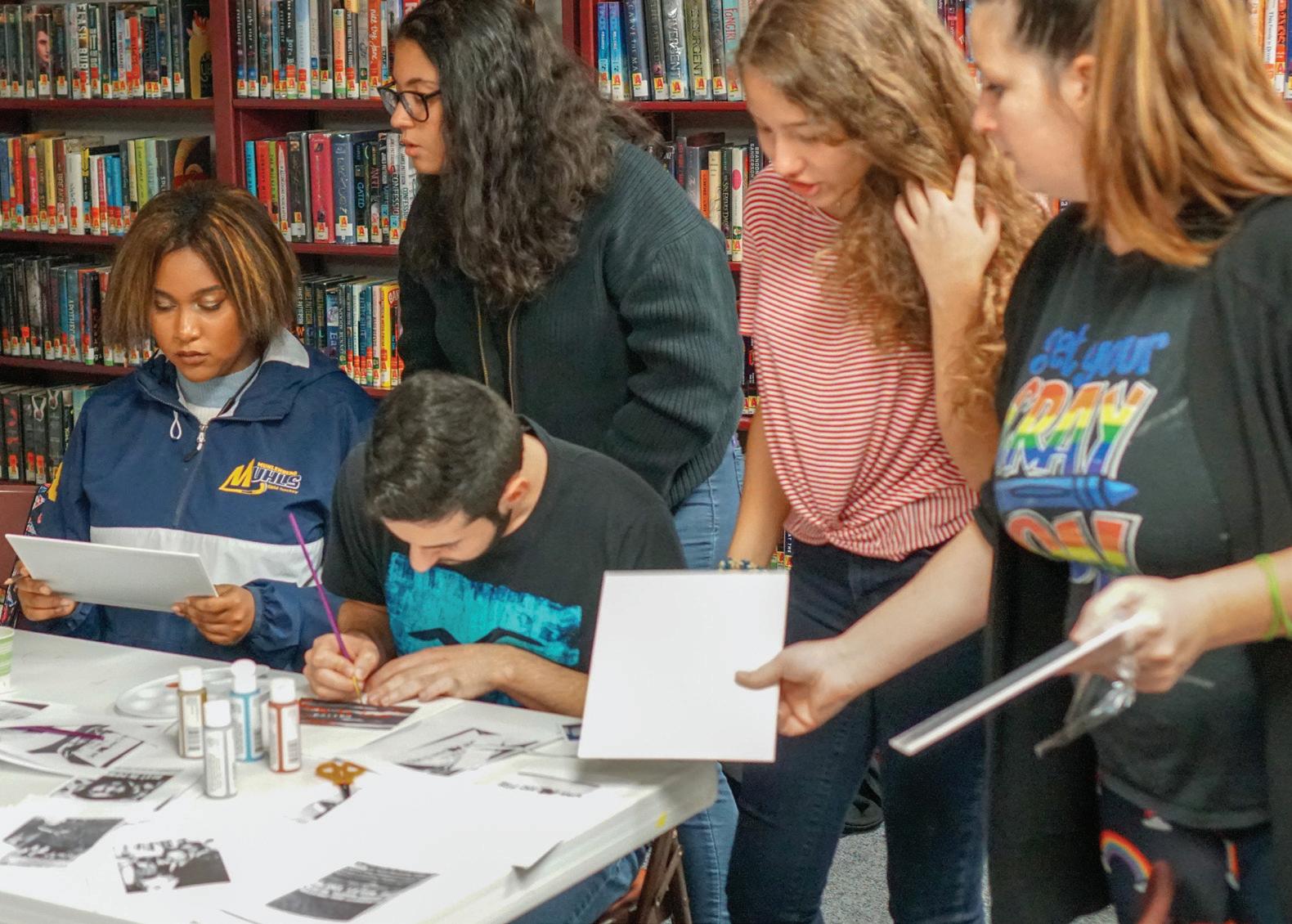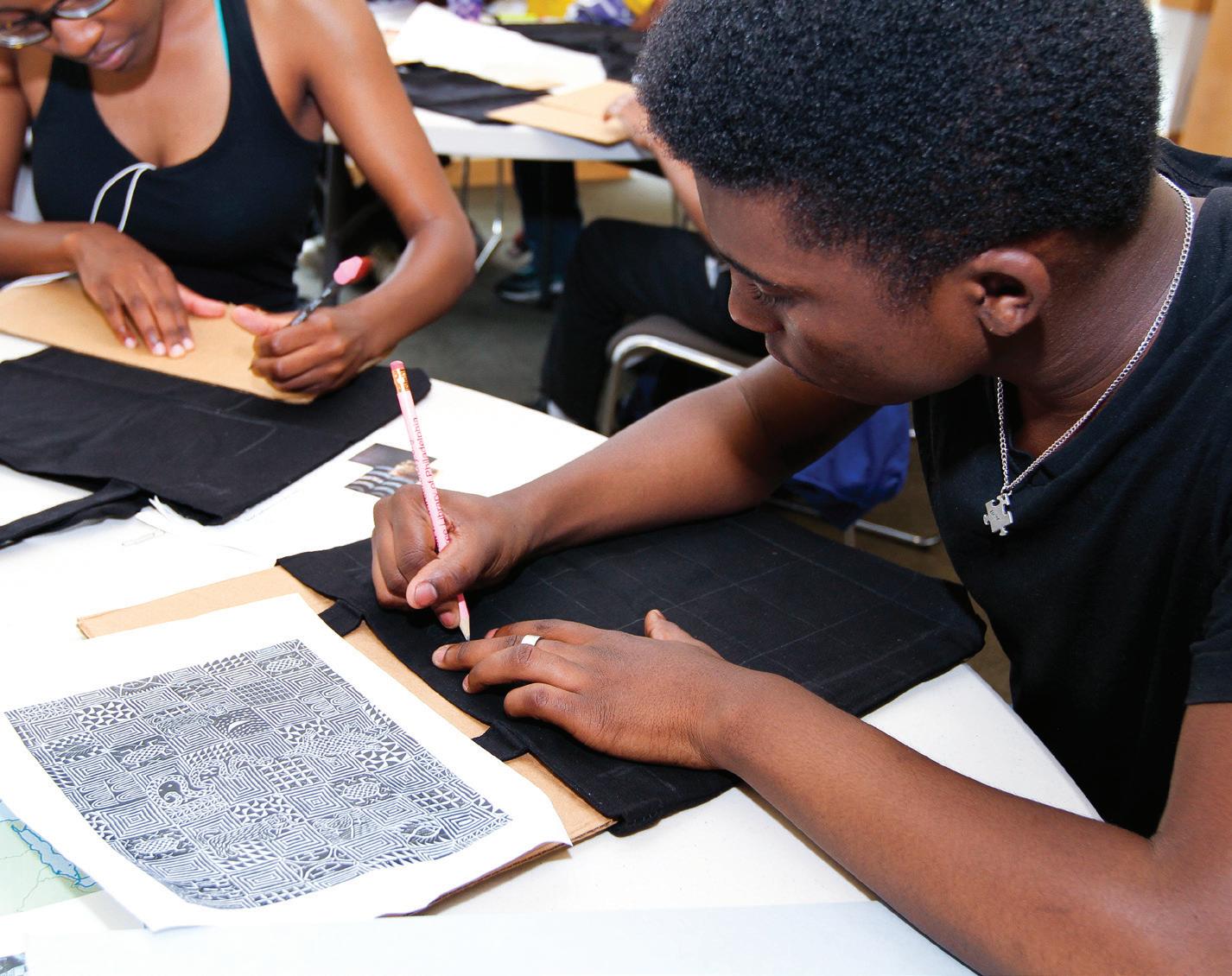
3 minute read
The Future of Teen Reading Lounge

In 2010, Teen Reading Lounge started out as a book club for avid readers who were regular visitors to the library. It has evolved into an impactful positive youth development program that can serve all youth - particularly those most at risk for being excluded. As researchers demonstrate the importance of social emotional learning skills (SEL) on the well-being of children and youth in K-12 classrooms, this research is being applied to OST programming. Books and conversation can be a catalyst for discovering the humanities and developing SEL skills among teens. As TRL grows and evolves, we see a powerful connection between the relationships that exist between SEL skills and the humanities - and the competencies being fostered by the program.
Early in 2020, the Covid-19 pandemic necessitated a sharp pivot to online programming for TRL participants and unfounded challenges for youth professionals. The digital divide was a prominent aspect of inequity that resurfaced as a result of the pandemic. Considerable efforts were redirected to supporting frontline staff through additional professional development that focused on centering equity, low-tech/no-tech programming, and sustaining caring relationships. The monthly community of practice meetings have been a vital space for brainstorming, sharing, and adapting together, in addition to one-to-one check-in calls to support sites and learn about a re-envisioned TRL. Professional development remains a place for future growth and development.
Our most recent round of evaluation data affirms the need to continue training and to work closely supporting site staff to ensure that youth are likely to have a welcoming participatory experience. This is particularly important because of the growing number f racially and ethnically diverse youth engaging in the program as well as the long-term effects of Covid-19 on family structures, access to education, and access to opportunities.


Income distinctions, race/ethnicity, religion, gender, and sexuality are all identities that impact the day-to-day encounters of young people. For some youth, intersecting identities, such as being a girl and being Black, increase their vulnerability. Caring adults need to be more aware of the social inequities youth experience and take time to provide programming that is culturally congruent and youth driven.35
Helping site staff and leadership to affirm and be responsive to young people’s identities and lived experience can help youth have a positive experience with the humanities. While we have done considerable training with direct program staff in this area, we know that without support from their leadership and larger system, transforming the way youth-serving spaces see and engage young people in the humanities is not truly sustainable. For this reason, we are excited to move into a strategic inquiry process and program development project in order to imagine with our partners and stakeholders what it would take to grow and support TRL and the best practices we have developed over these ten years at scale.
PA Humanities’ method of program development, one that centers continuous and participatory learning and evaluation, means staff will always be uncovering new knowledge about positive youth development, their communities, and the young people who live in them. Teen Reading Lounge demonstrates how a constant dialogue about the experience can result in a more authentic program that serves diverse populations while still achieving consistent goals. This program methodology has continuously resulted in teens from different backgrounds benefiting from a youth-driven experience that encourages positive growth in their social and academic skills. Teens are able to explore who they are and learn to appreciate the identity of others as they share experiences through collaborative discussions and activities. Providing opportunities for them to direct these types of activities allows teens to mature in their understanding of themselves, their peers, and the world around them. The program’s constant evaluation and open-mindedness produces the dynamic nature of TRL, which provides the opportunity for meaningful growth in both youth participants and frontline staff.








